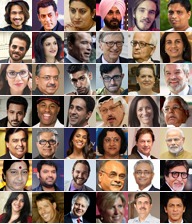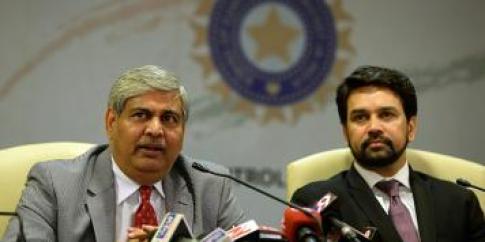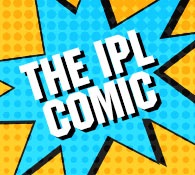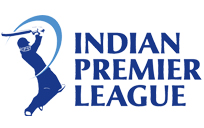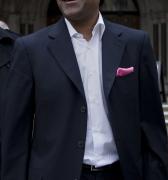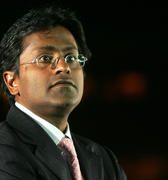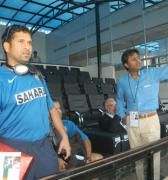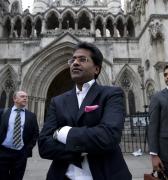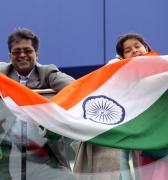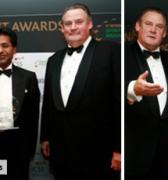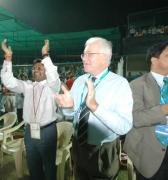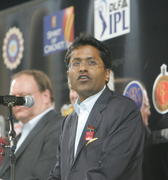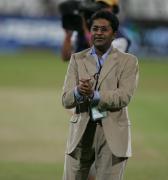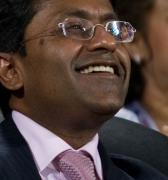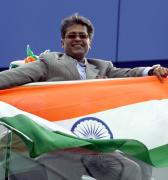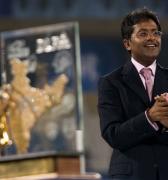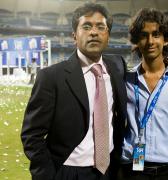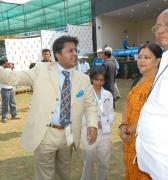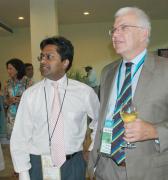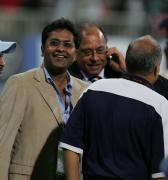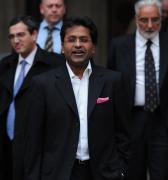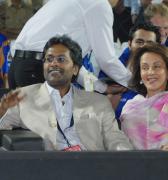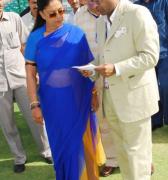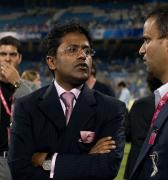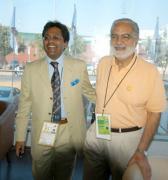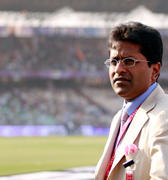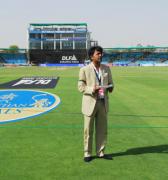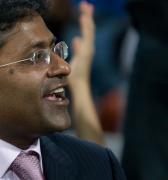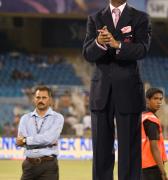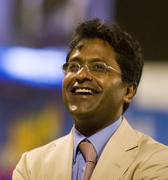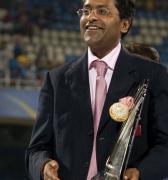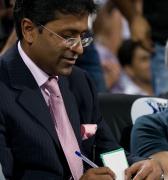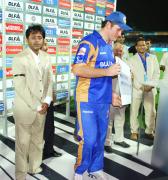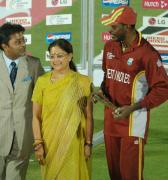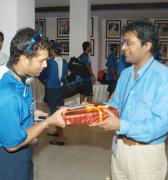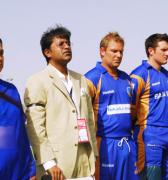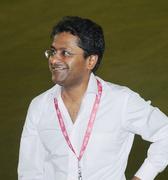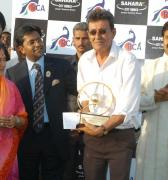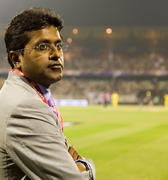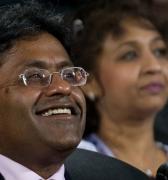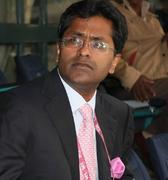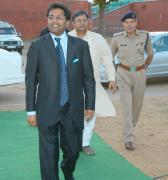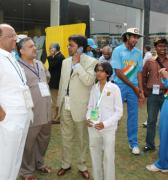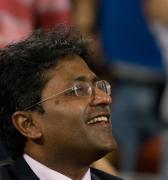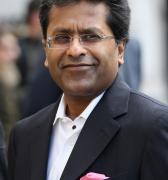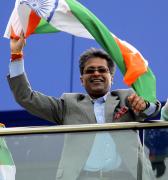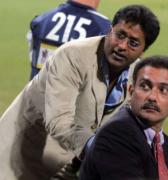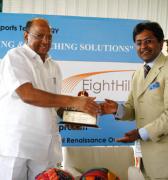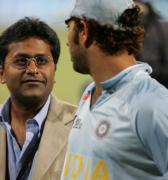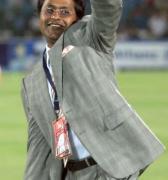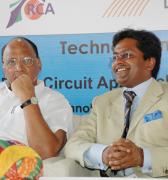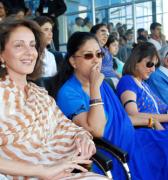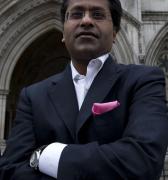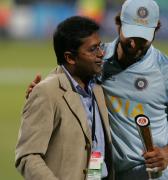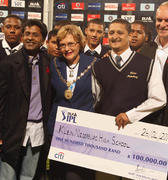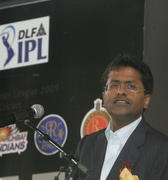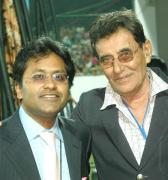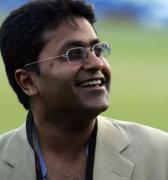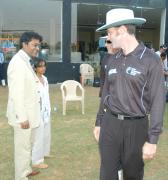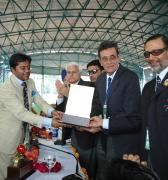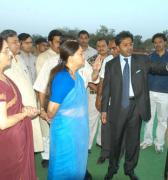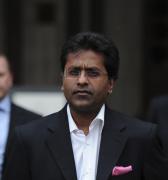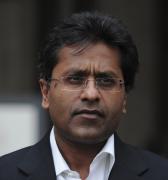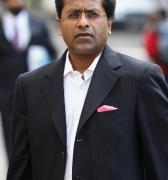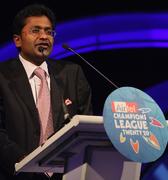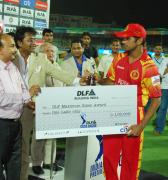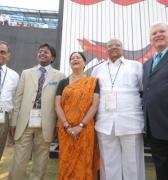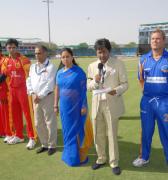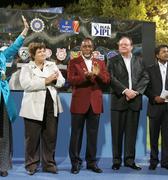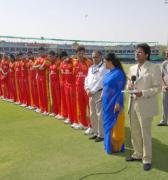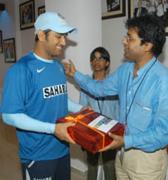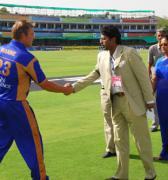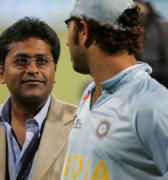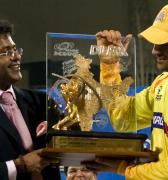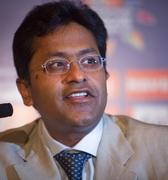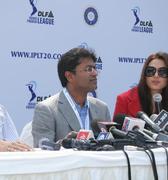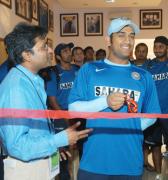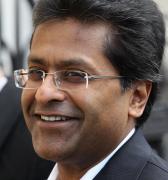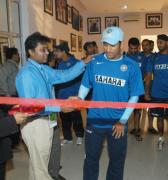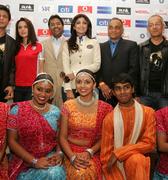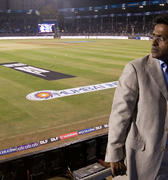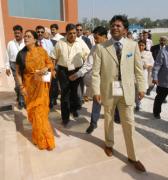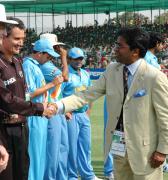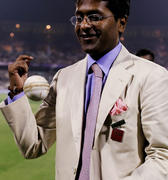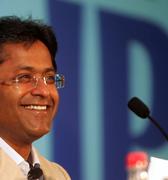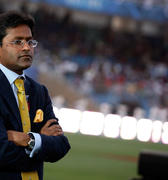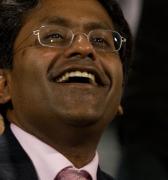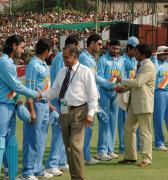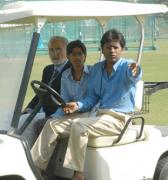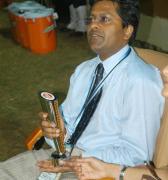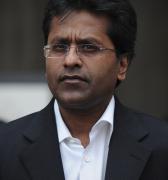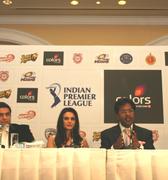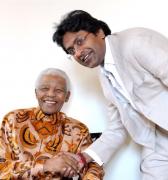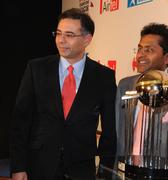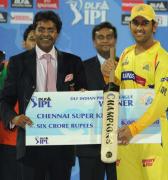ICC chairman says Thakur wanted letter
ICC chairman Shashank Manohar has contradicted BCCI president Anurag Thakur's claim in his affidavit to the Supreme Court that he did not ask the ICC for a letter stating that the Lodha Committee's recommendation to have a member of the Comptroller and Auditor General's office on the apex council of the BCCI amounted to government interference in the board.
In an email to the Lodha Committee on November 2, Manohar wrote that Thakur had asked him to issue a letter but he had refused to do so.
The matter was last heard in the Supreme Court on December 15 and the court said there was, on first impression, enough evidence for a charge of perjury against Thakur.
Manohar, in his email, said Thakur had made the request on August 6, at an ICC meeting also attended by ICC directors Giles Clarke, David Peever and Imran Khawaja, as well as ICC CEO David Richardson and COO Iain Higgins.
"During the meeting Mr. Thakur pointed out to me that when I was the President of BCCI, a submission was advanced before the Supreme Court at my behest that the appointment of a nominee of the CAG on the Apex Council might amount to Governmental interference and would invoke an action of suspension from the ICC," Manohar wrote. "He therefore requested me to issue a letter to that effect in my capacity as ICC Chairman.
"I declined to issue such a letter and explained to him that the said submission was advanced before the Hon Supreme Court when the court was hearing the matter. However, on 18-7-2016 the Hon SC delivered its judgement in the matter and rejected the submission that the appointment of a nominee of the CAG would amount to governmental interference.
"I therefore explained to Mr Thakur that the issue having been decided by the Hon Supreme Court of India, which is the highest court of the country and whose judgement binds everybody, I cannot give him any such letter. All this transpired in the presence of the Directors I have named earlier and the CEO and COO of ICC."
The issue first arose on September 12, when India Today quoted Richardson as saying that Thakur had asked the game's governing body for a letter that would support the BCCI's stance against the Lodha Committee's recommendations: the ICC does not permit government interference in the running of its Full Member boards.
The Supreme Court got involved, asking Thakur why he would need to ask for such a letter when the court had already approved the Lodha Committee's recommendation for a CAG official on the apex council. On October 17, Thakur filed an affidavit in which he denied asking the ICC for such a letter.
Thakur said he only asked Manohar what his stance on the matter had been when he was the BCCI president. "I pointed out to the Chairman of the ICC, Mr Shashank Manohar that, when he was President of BCCI, he had taken a view that the recommendations of the Justice Lodha committee appointing the nominee of the CAG on the Apex Council would amount to governmental interference, and might invoke an action of suspension from ICC," Thakur had said in his affidavit. "I therefore requested him that, being the ICC Chairman, can a letter be issued clarifying the position which he had taken as BCCI President."
According to Lodha Committee secretary Gopal Sankaranarayanan, there was a discrepancy in the affidavit submitted by Thakur and the letter submitted by Manohar. "In [Anurag] Thakur's version of events it is a clarification he had sought. In Manohar's version of events, he said, 'As ICC chairman I was asked to give a letter, not a clarification, saying that this amounts to interference.'"
The Lodha Committee - comprising former Chief Justice of India RM Lodha and retired Supreme Court judges Ashok Bhan and R Raveendran - was formed in January 2015 to determine appropriate punishments for some of the officials involved in the 2013 IPL corruption scandal, and also to propose changes to streamline the BCCI, reform its functioning, prevent sporting fraud and conflict of interest.
In January 2016, the committee released its report, which recommended an exhaustive overhaul of the BCCI's governance and administrative structures. On July 18, the Supreme Court approved the majority of the recommendations and directed the Lodha Committee to supervise the BCCI's implementations of the same. However, despite the Lodha Committee laying out timelines and other directives, the board has not cooperated because its state associations objected to the recommendations.
ICC chairman Shashank Manohar has contradicted BCCI president Anurag Thakur's claim in his affidavit to the Supreme Court that he did not ask the ICC for a letter stating that the Lodha Committee's recommendation to have a member of the Comptroller and Auditor General's office on the apex council of the BCCI amounted to government interference in the board.
In an email to the Lodha Committee on November 2, Manohar wrote that Thakur had asked him to issue a letter but he had refused to do so.
The matter was last heard in the Supreme Court on December 15 and the court said there was, on first impression, enough evidence for a charge of perjury against Thakur.
Manohar, in his email, said Thakur had made the request on August 6, at an ICC meeting also attended by ICC directors Giles Clarke, David Peever and Imran Khawaja, as well as ICC CEO David Richardson and COO Iain Higgins.
"During the meeting Mr. Thakur pointed out to me that when I was the President of BCCI, a submission was advanced before the Supreme Court at my behest that the appointment of a nominee of the CAG on the Apex Council might amount to Governmental interference and would invoke an action of suspension from the ICC," Manohar wrote. "He therefore requested me to issue a letter to that effect in my capacity as ICC Chairman.
"I declined to issue such a letter and explained to him that the said submission was advanced before the Hon Supreme Court when the court was hearing the matter. However, on 18-7-2016 the Hon SC delivered its judgement in the matter and rejected the submission that the appointment of a nominee of the CAG would amount to governmental interference.
"I therefore explained to Mr Thakur that the issue having been decided by the Hon Supreme Court of India, which is the highest court of the country and whose judgement binds everybody, I cannot give him any such letter. All this transpired in the presence of the Directors I have named earlier and the CEO and COO of ICC."
The issue first arose on September 12, when India Today quoted Richardson as saying that Thakur had asked the game's governing body for a letter that would support the BCCI's stance against the Lodha Committee's recommendations: the ICC does not permit government interference in the running of its Full Member boards.
The Supreme Court got involved, asking Thakur why he would need to ask for such a letter when the court had already approved the Lodha Committee's recommendation for a CAG official on the apex council. On October 17, Thakur filed an affidavit in which he denied asking the ICC for such a letter.
Thakur said he only asked Manohar what his stance on the matter had been when he was the BCCI president. "I pointed out to the Chairman of the ICC, Mr Shashank Manohar that, when he was President of BCCI, he had taken a view that the recommendations of the Justice Lodha committee appointing the nominee of the CAG on the Apex Council would amount to governmental interference, and might invoke an action of suspension from ICC," Thakur had said in his affidavit. "I therefore requested him that, being the ICC Chairman, can a letter be issued clarifying the position which he had taken as BCCI President."
According to Lodha Committee secretary Gopal Sankaranarayanan, there was a discrepancy in the affidavit submitted by Thakur and the letter submitted by Manohar. "In [Anurag] Thakur's version of events it is a clarification he had sought. In Manohar's version of events, he said, 'As ICC chairman I was asked to give a letter, not a clarification, saying that this amounts to interference.'"
The Lodha Committee - comprising former Chief Justice of India RM Lodha and retired Supreme Court judges Ashok Bhan and R Raveendran - was formed in January 2015 to determine appropriate punishments for some of the officials involved in the 2013 IPL corruption scandal, and also to propose changes to streamline the BCCI, reform its functioning, prevent sporting fraud and conflict of interest.
In January 2016, the committee released its report, which recommended an exhaustive overhaul of the BCCI's governance and administrative structures. On July 18, the Supreme Court approved the majority of the recommendations and directed the Lodha Committee to supervise the BCCI's implementations of the same. However, despite the Lodha Committee laying out timelines and other directives, the board has not cooperated because its state associations objected to the recommendations.
Courtesy: ESPNCricinfo




